References for product manager level 80
The product manager is still a rare beast in Russian and Ukrainian IT companies. And if within teams where a product manager exists, his role doesn’t cause questions (if he is, of course, in business), then acquaintances in other companies, at conferences, friends, from developers to project managers ask a lot of curious questions. The questions are very variegated - from what the actual work is and how the process of working on the product in our team is organized, to where to learn what to read, and where they generally hire product managers.
The most popular question “what to read if I want to deal with a product” prompted me to put together a list of books that helped me a lot at different times, from the first steps in the products to working with a cool team of professionals who, I hope, with I feel comfortable
Just want to say that all the books in English. Some of them can be found in Russian, but without English at the level of reading and listening to podcasts it will be hard - cool things about product management are slowly and reluctantly translated into Russian. The second point - reading books from this list will not make you a product manager. Like a C ++ book for 21 days, it will not make you a C ++ developer. It’s just that the level of entry into the humanitarian environment professions is lower, and this sometimes creates vain illusions.
')
But this list will definitely shed light on those areas that you have not encountered, working in it projects in other posts, will make you think about your role and the users for which you ultimately work.
So, my list of recommended literature for anyone who wants toshed blood, sweat and tears is to work as a product manager or is already working for them.
1. Inspired: How to Create Products Customers Love
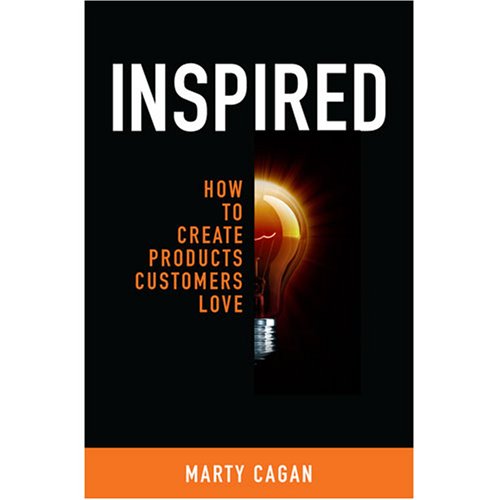
The book, first of all, for those who doubt and ask questions about what exactly the product manager should do, what qualities should have, what experience and skills should be combined in this role. And also, how to be not a hostage of circumstances, but a cool professional who understands which product features to chase and which ones to leave; when the product needs to be put on the market more likely, how to maneuver between the gazillion of requirements of all those interested in the project, and, most importantly, how to get what users truly love.
Favorite quote:
2. Agile Product Management with Scrum: Creating Products that Customers Love
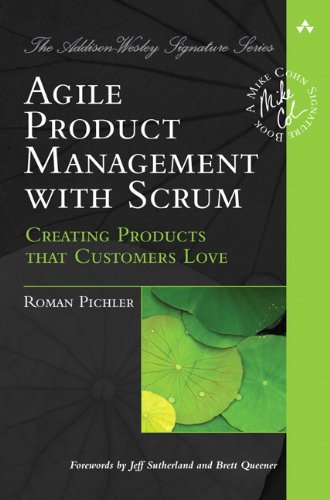
Bible owner of the product in the agile team.
You can relate to flexible methodologies as you please, but this is a must read for any self-respecting product manager. The book is very easy to read and you can learn simple, but very valuable practices from it: agile product discovery techniques, working with constantly changing requirements and creating a minimum product that can be launched onto the market. One of the most valuable sections there is working with the team and with those interested in the product (investors, future users, people within the company who promote your product).
3. Shipping Greatness
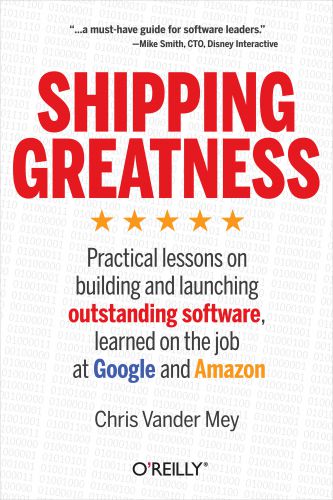
Awesome book for beginners. Probably, it will be a bit too much banality for a person with experience, but she famously summarizes the experience and lays out everything sooo clearly on the shelves - the whole process from inception to product launch. If you decide to read exactly 1 book on food management in your life, then let it be Shipping Greatness or Inspired.
Favorite quote:
1. Don't Make Me Think
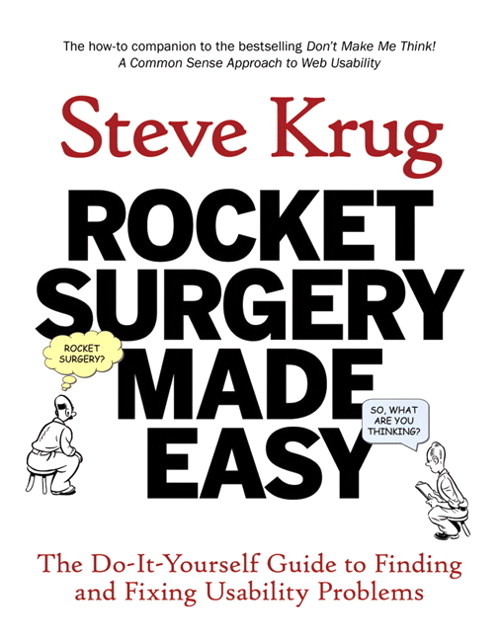
The first publication of this book is the year 2000. She has gone through several reprints and is absolutely mandatory for any web designer and product manager to read. If you are engaged in the web and have not read this book yet, run in the kindle store.
2. Designing with Design in Mind
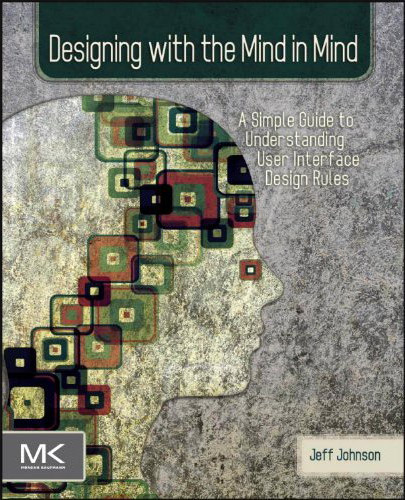
If you want to judge the designs and user interactions with them not only in terms of “by grid / not by grid”, “flat / ske-morphically” and “in trend / director like”, then you cannot avoid acquaintance with cognitive psychology. This book is a brief insight into cognitive psychology that will definitely help you better understand, for example, why non-native mobile applications are a crime against humanity.
Favorite quote:
3. Interviewing Users: How to Uncover Compelling Insights
Every good product manager will somehow have to get acquainted with the techniques of user research, beta testing and interviews. So far, I have not met a single book / report or an online course that would so qualitatively teach techniques of interviewing and working with users. Very highly recommend.
1. Mastering the Requirements Process
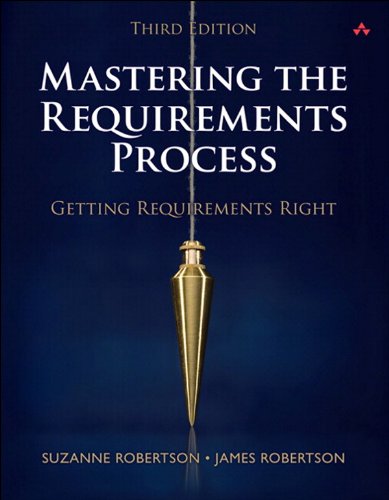
In short, the best requirements are the prototype as close as possible to reality. But often this is not so simple, and the team must collect and maintain a huge amount of documentation in order to take into account all-all-important for the product and bring it to testers and end users. This book (plus a lot of patience and hard work) is all you need to ensure that your requirements are always in order.
1. Positioning: the Battle for Your Mind
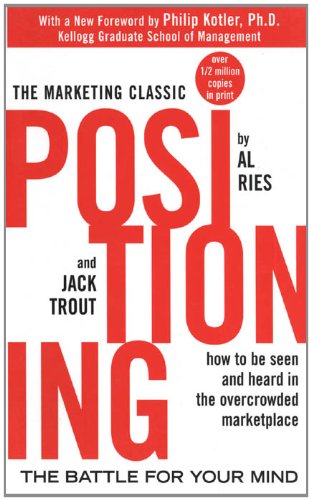
The best book on grocery marketing and positioning, which is worth reading. She has no it-specificity, and she doesn’t dive too deeply into the subject, but it’s just a huge number of super useful examples that will unambiguously push you into thinking about how to properly position your product.
2. Lean Analytics. Use Data to Build a Better Startup Faster
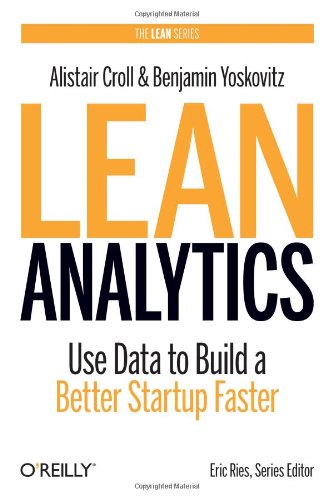
Simple, but good book on product analysis. If you have not read Lean Startup, then I recommend reading them as a pair. It gives you a basic idea of what and how to measure in your product, and at the same time not go crazy and do not count sheep instead of what you really need. Even if you have studied marketing in a university, one hundred percent will be very useful.
Favorite quote (about the fact that users live in the real world, and not in your office, and they should be examined there):
Enjoy reading!
The most popular question “what to read if I want to deal with a product” prompted me to put together a list of books that helped me a lot at different times, from the first steps in the products to working with a cool team of professionals who, I hope, with I feel comfortable
Just want to say that all the books in English. Some of them can be found in Russian, but without English at the level of reading and listening to podcasts it will be hard - cool things about product management are slowly and reluctantly translated into Russian. The second point - reading books from this list will not make you a product manager. Like a C ++ book for 21 days, it will not make you a C ++ developer. It’s just that the level of entry into the humanitarian environment professions is lower, and this sometimes creates vain illusions.
')
But this list will definitely shed light on those areas that you have not encountered, working in it projects in other posts, will make you think about your role and the users for which you ultimately work.
So, my list of recommended literature for anyone who wants to
Grocery management
1. Inspired: How to Create Products Customers Love

The book, first of all, for those who doubt and ask questions about what exactly the product manager should do, what qualities should have, what experience and skills should be combined in this role. And also, how to be not a hostage of circumstances, but a cool professional who understands which product features to chase and which ones to leave; when the product needs to be put on the market more likely, how to maneuver between the gazillion of requirements of all those interested in the project, and, most importantly, how to get what users truly love.
Favorite quote:
It doesn’t matter what it’s worth to build. More generally, we learned that it’s a good job engineering a product. At least as important as this is discovering a product that is valuable, usable and feasible.
2. Agile Product Management with Scrum: Creating Products that Customers Love

Bible owner of the product in the agile team.
You can relate to flexible methodologies as you please, but this is a must read for any self-respecting product manager. The book is very easy to read and you can learn simple, but very valuable practices from it: agile product discovery techniques, working with constantly changing requirements and creating a minimum product that can be launched onto the market. One of the most valuable sections there is working with the team and with those interested in the product (investors, future users, people within the company who promote your product).
3. Shipping Greatness

Awesome book for beginners. Probably, it will be a bit too much banality for a person with experience, but she famously summarizes the experience and lays out everything sooo clearly on the shelves - the whole process from inception to product launch. If you decide to read exactly 1 book on food management in your life, then let it be Shipping Greatness or Inspired.
Favorite quote:
Nothing is better for morale than making progress.
Usability and Interface Design
1. Don't Make Me Think

The first publication of this book is the year 2000. She has gone through several reprints and is absolutely mandatory for any web designer and product manager to read. If you are engaged in the web and have not read this book yet, run in the kindle store.
2. Designing with Design in Mind

If you want to judge the designs and user interactions with them not only in terms of “by grid / not by grid”, “flat / ske-morphically” and “in trend / director like”, then you cannot avoid acquaintance with cognitive psychology. This book is a brief insight into cognitive psychology that will definitely help you better understand, for example, why non-native mobile applications are a crime against humanity.
Favorite quote:
Systems that display poor responsiveness. They don't keep up with users.
3. Interviewing Users: How to Uncover Compelling Insights
Every good product manager will somehow have to get acquainted with the techniques of user research, beta testing and interviews. So far, I have not met a single book / report or an online course that would so qualitatively teach techniques of interviewing and working with users. Very highly recommend.
A bit about requirements management
1. Mastering the Requirements Process

In short, the best requirements are the prototype as close as possible to reality. But often this is not so simple, and the team must collect and maintain a huge amount of documentation in order to take into account all-all-important for the product and bring it to testers and end users. This book (plus a lot of patience and hard work) is all you need to ensure that your requirements are always in order.
Just a little bit of marketing and analytics
1. Positioning: the Battle for Your Mind

The best book on grocery marketing and positioning, which is worth reading. She has no it-specificity, and she doesn’t dive too deeply into the subject, but it’s just a huge number of super useful examples that will unambiguously push you into thinking about how to properly position your product.
2. Lean Analytics. Use Data to Build a Better Startup Faster

Simple, but good book on product analysis. If you have not read Lean Startup, then I recommend reading them as a pair. It gives you a basic idea of what and how to measure in your product, and at the same time not go crazy and do not count sheep instead of what you really need. Even if you have studied marketing in a university, one hundred percent will be very useful.
Favorite quote (about the fact that users live in the real world, and not in your office, and they should be examined there):
Get out of the building!
Enjoy reading!
Source: https://habr.com/ru/post/210372/
All Articles